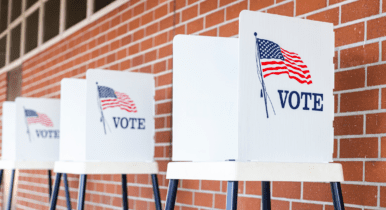‘We Can Lead on the Issues’: Veteran Dem Pollster Launches Firm
If you ask Jonathan Voss, too many pollsters are missing the point of their trade.
According to the longtime Democratic pollster, survey research shouldn’t just be about measuring and reacting to public opinion – it’s also about shaping it.
“I feel like some in the party think that their job is to respond to public opinion rather than drive it,” Voss told C&E. “There’s a context to how people form opinions, and I feel like so many of us are chasing rather than leading.”
After 14 years at Lake Research Partners – the polling and strategy firm headed up by veteran Democratic pollster Celinda Lake – Voss is going out on his own. He launched Voss Research and Strategy earlier this year. Voss’ mission, he said, is to help clients use data and research to get ahead of and shape trends instead of just reacting to them. The firm is based in the Washington, D.C. area and conducts research nationally.
Voss specializes in qualitative and quantitative research – including focus groups – with a focus on identifying the values that messaging can activate in order to rally support for a given issue. Democrats and progressives, he said, is to move away from “centrist, poll-tested” messages and to home in on the policies and positions that can ignite and motivate the party’s base.
“If our base on any particular issue isn’t willing to carry the message – isn’t willing to get off the couch and do the activism – then no one else is going to carry that message,” Voss said. “You need to mobilize the base to persuade the middle.”
For example, in 2015, when President Donald Trump launched his first White House campaign, immigration was something of a “second-tier issue” for most Americans, Voss said. But, “it was animating for Republicans.”
“I fundamentally disagree with the divide-and-conquer approach,” Voss said. “But we can lead on the issues rather than just chase polls.”
Voss said that something political pros on the left often miss is that “politics flows downhill from both culture and activism.” Data-driven decision making is still important, he said, but so is uncovering the underlying factors and forces pushing people towards certain positions and beliefs.
That means looking at where a clients’ “ideological base” is at on an issue, but also at the “ideological opposition,” he said.
“I’m very much a believer in polling,” Voss said. “It’s an incredibly effective tool. It’s incredibly important to account for public opinion. But I think it’s sometimes misused. What I’m trying to do is use it as the most effective tool it can be as opposed to hiding behind some things.”

